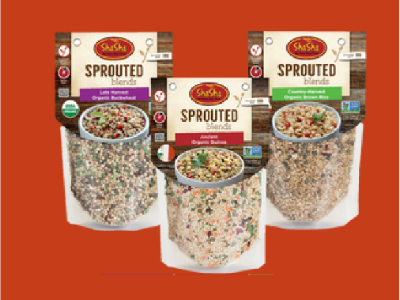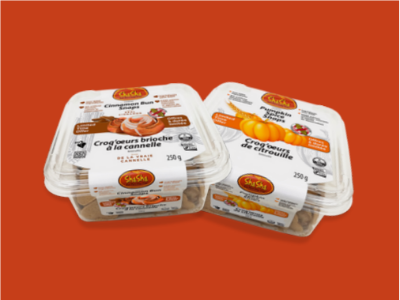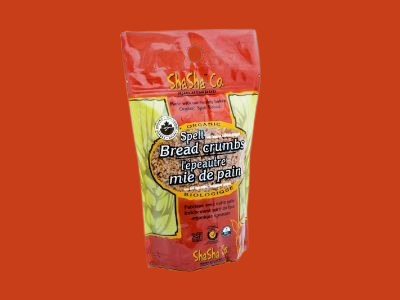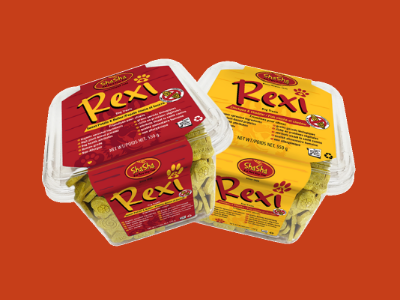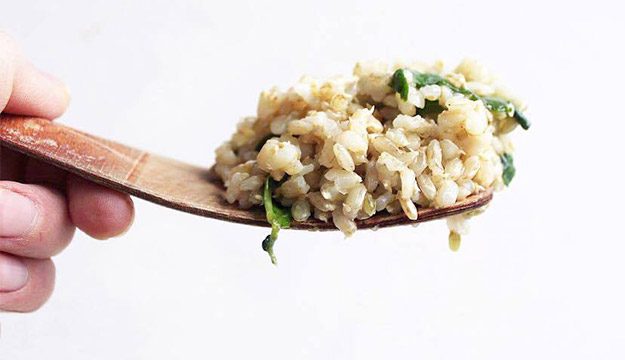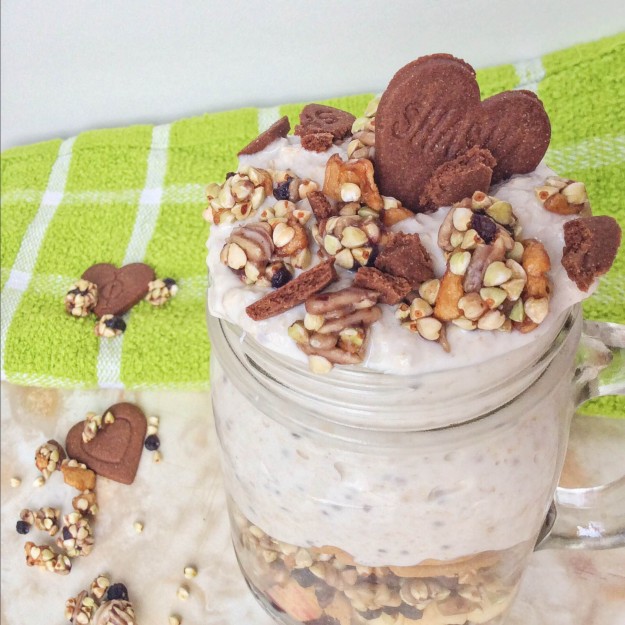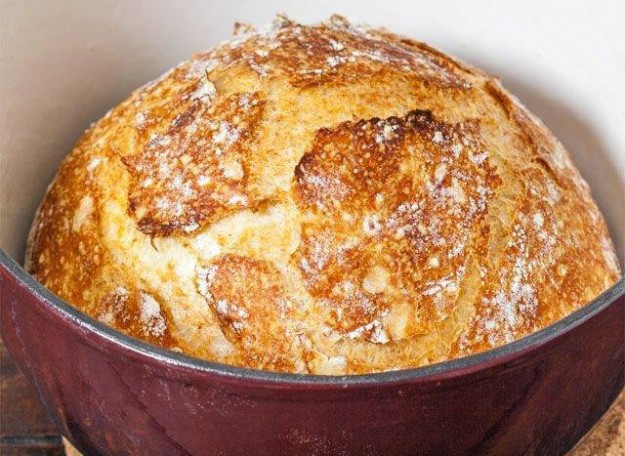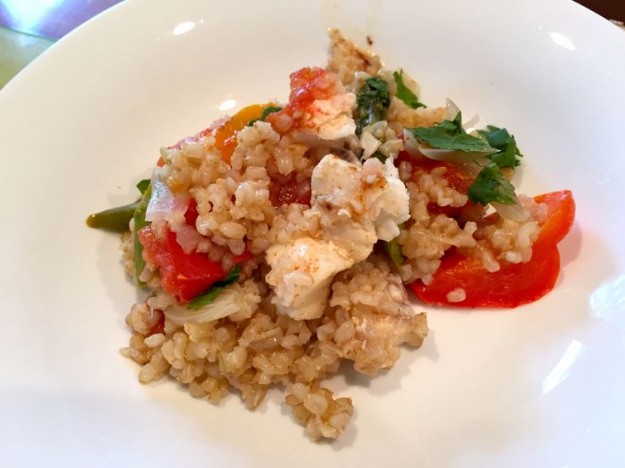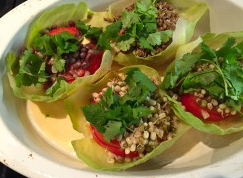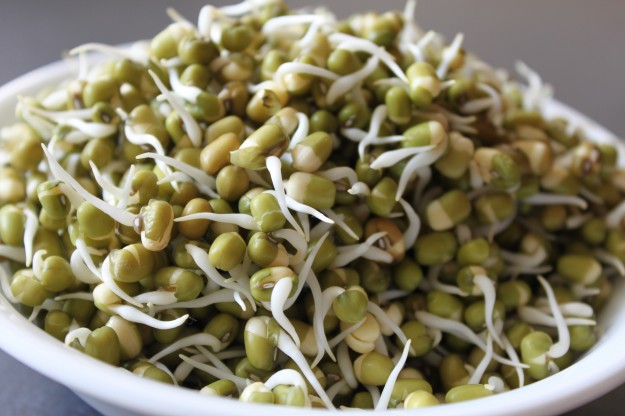Who knew that just adding water to your favorite organic grains could unlock so much potential? Sprouted grains are nature’s little miracles as they have almost three times the nutrients of legumes and beans, can help with digestion and weight loss and they are packed with fiber too. The sprouted grains that are popping up in your veggie aisle, healthy snacks and organic bread are there for good reason; packed with vitamins, fiber, and protein, these pint-sized sprouts sure pack a healthy punch!
Research shows that sprouting frees the embodied energy of grains and improves the vitamin content up to 24 times. From the study: “…germination dramatically increased total phenolic compounds and total flavonoids up to 4.5 and 6.8 times. Quercetin-3-O-glucoside content was significantly increased in mung bean sprouts after germination. The total antioxidant activity of mung bean sprouts was increased by 6 times.”
As humans, we aren’t able to break down or absorb all nutrients from the food we eat but by eating sprouted products we are able to absorb a minimum of 3 times more nutrients from our favorite foods.

Sprouted grains have many positive attributes:
- Sprouted grains remove or reduce phytic acid and tannins
- They prevent mineral deficiencies and bone loss
- Sprouted grains neutralize enzyme inhibitors
- When sprouted, grains encourage the body’s production of beneficial enzymes
- Sprouting of grains increases the amount of vitamins, especially B vitamins
- They prevent many diseases and conditions
- Sprouted grains are able to break down gluten and make digestion easier
- They make proteins easier to absorb
- Sprouted grains help neutralize toxins in the colon and keep it clean
Imbued with Enzymes
Studies show that sprouting releases an incredible enzyme content in the plant and sprouted grains can have up to 100 times more enzymes than raw fruits and vegetables. Enzymes are special proteins that enable your body to function optimally; ensuring that essential fatty acids, amino acids, vitamins and minerals are effectively extracted from your food during digestion.
Unsprouted grains may contain enzyme inhibitors. These attach to enzymes (which help us break down and digest food) and prevent them from doing their jobs. When grains are sprouted, enzyme inhibitors are neutralized.
Viva la Vitamins!
Supersize your vitamin intake with sprouted grains which are packed with vitamins A, B-complex, C and E. An analysis of existing studies by JK Chavan and SS Kadam found that: “Sprouting of grains for a limited period causes increased activities of hydrolytic enzymes, improvement in the contents of certain essential amino acids, total sugars, and B-group vitamins, and a decrease in dry matter, starch, and antinutrients. The digestibilities of storage proteins and starch are improved due to their partial hydrolysis during sprouting.”
Fill up with Fiber
The fiber content of sprouts is considerably higher than the beans, legumes, nuts, seeds, or grains from which they grew. Fiber isn’t only essential to effective digestion; it is also a crucial factor in weight loss. Fiber is the bouncer of the body as it binds to fats and toxins and shows them out the door.
German researchers sprouted wheat grains for up to 1 week, testing them at various stages to ascertain the effects germination had on nutrient levels. They found that sprouting decreased gluten proteins significantly and increased folate. When the wheat was germinated for longer periods, it resulted in a substantial increase of dietary fiber, with a remarkable tripling in soluble fiber.
Sprouted Grain Rice Fights Diabetes
In a Japanese study, six men and five women with impaired fasting glucose (pre-diabetes) or type 2 diabetes were asked to eat either white rice or sprouted brown rice three times a day. After two weeks, the subjects switched grains. Researchers reported that: “blood concentrations of fasting blood glucose, fructosamine, serum total cholesterol and traicylglycerol were favorably improved on the sprouted brown rice diet but not on the white rice diet”. This means that sprouted brown rice may help control blood sugar.
Healthy Hearts
A Korean study discovered that rats with high cholesterol benefitted substantially from a diet of sprouted grains and found an increase in their ‘good’ cholesterol (plasma HDL-cholesterol) levels. The study concluded: “consumption of germinated giant embryonic rice is effective in lowering atherosclerosis cardiovascular disease risk.”
Sprouting Rye increases and Protects Folates
Researchers in Finland found that when rye is sprouted, the folate content increases by 1.7- to 3.8 percent (depending on germination temperature). Researchers found that heat treatments (like those used in puffed cereals) caused significant folate losses. If the rye was sprouted first and then exposed to the heat treatments, folate losses were minimized which means sprouting is a useful tool for protecting nutrients during food processing.

